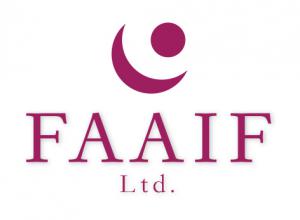FAAIF Introduces Islamic Finance in the USA
Islamic Finance has big potential in the United States.
Musharakah is an Islamic joint-venture where two partners come together to form a partnership based on profit and loss sharing. The partners agree to share profit in a pre-agreed ratio while the partners share loss according to capital investment. In Mudharabah, the capital provider or rabbul mal provides the capital while the mudarib or manager manages the enterprise on a restricted or unrestricted basis. Mudharabah also engages in profit-and-loss sharing where the partners agree to share profit in a pre-agreed ratio. However, in the case of loss, the rabbul mal or capital provider bears all of the loss. In murabahah, a client approaches a bank for financing. After agreeing to a purchase order/sale and purchase agreement or engaging in a promise to pay, the bank purchases an asset for the client and sells the asset to the client at cost plus mark-up in a deferred instalment plan at a higher price than the purchase price. In tawarruq, the client and bank perform a murabahah transaction and then the client takes the asset and sells it to a client for instant cash. The client secures financing through financing an asset through the bank and selling it to another client for cash. In salam financing, a client approaches the bank for advanced payment for i.e. a crop to produce for delivery in the future. The bank then enters a parallel salam with an end-buyer who pays the bank now for delivery of the same crop in the future at a higher price. The difference between the two prices, the bank and the first farmer (lower price) and the bank and the end-buyer (higher price) is the profit for the bank. In istisna’a, a client approaches a bank for financing of a i.e. construction or infrastructure project. The bank pays now or later for delivery of the project later. The bank then enters a parallel istisna’a with an end-buyer at a higher price for delivery of the project later. The end-buyer pays the bank now or later for the project. The difference between the two prices, the first client and the bank (lower price) and the bank and the end-buyer (higher price) is the profit for the bank. In all of the aforementioned modes of finance, interest has been deleted and replaced with innovative forms of financing.
Sukuk is an Islamic bond, which operates on a money-commodity transaction rather than a money-money transaction. An investor purchases a share of the underlying asset of the sukuk transaction and a pro-rata share of the income generated from the asset. The investor becomes the owner of an asset and a business partner of the issuer. In takaful, or Islamic insurance, participants pool their premiums together into a pool and share risk amongst themselves rather than transferring risk to the insurance company through a sale and exchange contract. The takaful operator invests the pool into Shari’ah compliant investments and shares the ROI with the pool of takaful participants. The premiums are returned back to the participants at the end of the takaful period. These are straightforward concepts, which can all be applied in the United States to some degree or level. The opportunity cost for the USA is quite large in not participating in this global market and opportunity at this moment in time.
Interest free financing modes may enhance the system currently in use in the United States and offers a chance for Americans to diversify portfolios, attract global investors, enhance liquidity, and compete in the global village. Islamic finance is worth exploring!
*Camille Paldi is the only US Citizen to have graduated from the Durham University Islamic Finance Program in the UK and to have received comprehensive training in Islamic Banking and Finance from the UAE, Saudi Arabia, Iran, Bahrain, Qatar, Turkey, Bangladesh, Malaysia, Pakistan, Jordan, Palestine, Morocco, Tunisia, Egypt, and the UK. Camille Paldi is the founder of the Franco-American Alliance for Islamic Finance (FAAIF), FAAIF Limited, FAAIF Events DMCC (http://www.francoamericanallianceforislamicfinance.com), the Inter-Faith Finance and Economics Association (IFFEA); Ilovetheuae.com (Islamic financial portal) Islamic Finance Search Engine (http://www.islamicfinancialportal.com), and Natural Intuitive Self-Healing Nish Centers (http://nishcenters.com). Camille Paldi is an honors graduate of Colgate University in New York, the London School of Economics, and the Castilleja School for Girls in Palo Alto, CA. Camille Paldi has also qualified as a lawyer in the UK, Australia, New Zealand, and the Dubai International Financial Centre Courts (DIFC) of the UAE. SKYPE: camille.paldi. Phone: +1 650 250 2839; E-mail: camille@francoamericanallianceforislamicfinance.com.
Camille Paldi
FAAIF
+1 650 250 2839
email us here
Legal Disclaimer:
EIN Presswire provides this news content "as is" without warranty of any kind. We do not accept any responsibility or liability for the accuracy, content, images, videos, licenses, completeness, legality, or reliability of the information contained in this article. If you have any complaints or copyright issues related to this article, kindly contact the author above.

